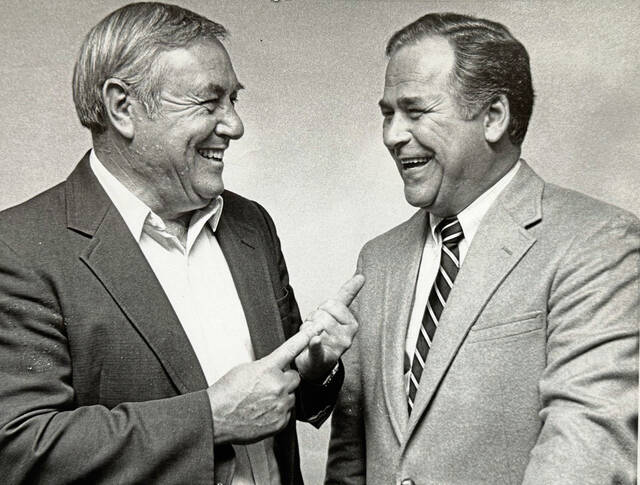“When in doubt, throw it out.”
It’s an unusual mantra for an organization dedicated to recycling, but it’s one that a lot more people will have to get used to, according to Ellen Keefe, director of the nonprofit Westmoreland Cleanways and Recycling.
China is importing much less American recyclable materials, which means American waste haulers have become much pickier over what products they will take. These changes are gradually being rolled out across Western Pennsylvania.
Westmoreland Cleanways has done its best to warn people about the changes with newsletters, fliers and social media posts, but many people still are being caught off guard.
“People got used to putting a lot of different types of plastic and glass in their recycling bin,” Keefe said. “All of a sudden, they’re being told no, no glass, and only (grade) 1 and 2 plastic.”
Perhaps the biggest problem, according to Keefe, is plastic bags.
Many people bag their recyclables. This has long been discouraged by waste haulers, but lately it’s been prohibited by most, Keefe said.
“Because of the way the equipment and the machinery is, the plastic bags create an issue, so these plants are putting their foot down,” Keefe said.
Seton Hill Child Care’s Greensburg Early Care & Education Center recently implemented a recycling program.
The center got a large commercial recycling bin, but it wasn’t long before it ran into problems, said Marcie Banze, health coordinator at the center.
“At one point, we had received a call and a fine (from Waste Management) because they said we had some trash in our recycling bin,” Banze said.
The staff assumed neighbors had been dumping trash into the outdoor bin, so they bought locks to keep it closed at night. But soon they got another notice, and another fine.
The staff started locking the Dumpster during the day, opening it only when dumping recyclables.
When they got their third fine, they searched the Dumpster trying to find the contamination, and found nothing.
Banze called Westmoreland Cleanways and Waste Management looking for answers.
“That’s how I found out those large bags were what was considered contamination, and that’s what the fees were for,” she said.
The fines cost several hundred dollars, though Waste Management may refund part or all of them, Banze said.
More efforts are needed to educate people and businesses about the new recycling rules, she said.
“I haven’t been aware of it, and I don’t think many other people have been either,” Banze said.
She isn’t the only one caught off guard by the change. Keefe has fielded several calls recently with questions and complaints.
“People don’t notice it until it comes back to bite them,” she said.
Plastic garbage bags are technically recyclable. Some even feature the recycling symbol on their packaging.
However, these bags get caught up in the equipment at recycling facilities, causing major jams, said Waste Management spokeswoman Erica Deyarmin.
“Plastic bags are probably the biggest cause of contamination at our recycling facilities,” Deyarmin said. “We’ve always been trying to move away from plastic bags.”
Recycling rules vary between municipalities, so the best way to know for sure what’s allowed is to check with your local waste hauler, Deyarmin said.
Only Grade 1 and 2 plastic jugs and bottles are usually allowed. Other types of plastic, like bags and clam shell packaging, are often prohibited, even if it is the correct grade.
Most haulers recently prohibited glass of all kinds.
Westmoreland Cleanways is working on a local glass recycling program but has not finalized details.








